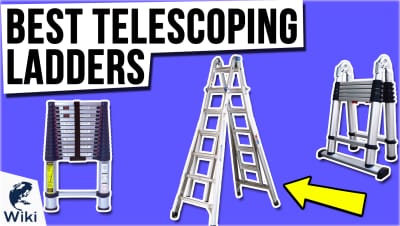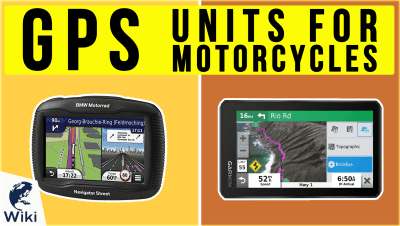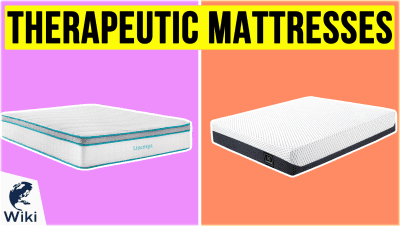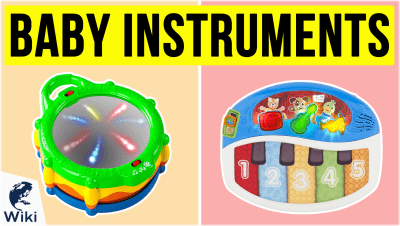7 Determined Organizations Advocating For People With Disabilities
In order to improve life for those living with disabilities, vigilance is required. These groups not only provide community services and educational initiatives, but assist with litigation and advocate for policy to ensure that the law is followed and that the rights of all Americans are protected. By taking things one step at a time, they're advancing equality and access across the country. This video was made with Ezvid Wikimaker.
7 Organizations Fighting for People with Disabilities
| Organization | Headquarters | Focus |
|---|---|---|
| Disability Rights Washington | Seattle, WA | Investigates abuse, provides legal support, and advocates for policy in the state of Washington |
| National Disability Rights Network | Washington, D.C. | Has agencies in all U.S. states and territories to secure government support, and champions legislation on behalf of those living with disabilities |
| Equip for Equality | Chicago, IL | Pursues litigation and legislative reform, monitors institutions in the disability services system, and offers a Training Institute to people in Illinois |
| Mobility International USA | Eugene, OR | Supports international exchange experiences, runs the Women's Institute on Leadership and Disability, and partners with NGOs committed to access around the world |
| Center for Independence of the Disabled, New York | New York, NY | Advises public officials on pertinent issues and assists with housing, health care, and employment |
| IndependenceFirst | Milwaukee, WI | Provides over 20 programs to the Milwaukee area, promoting inclusion in all aspects of life |
| National Organization of Social Security Claimants' Representatives | Washington, D.C. | Specialized bar association for attorneys and advocates who represent claimants of Social Security Disability Insurance and Supplemental Security Income |
An Introduction to Disability Rights Washington
Facts About Disabilities in America
- 1 in 4 adults in the United States have some type of disability
- The total civilian non-institutionalized population with a disability in the United States is 40,678,654
- 2 in 5 adults age 65 years and older have a disability
- 1 in 3 adults with disabilities between the ages of 18 and 44 had a health care need that went unmet within the past year because of the cost
- 37% of U.S. civilians with disabilities aged 18 to 64 have a job, compared to 77.2% for people without disabilities
- The median earnings over a 12-month period for the civilian non-institutionalized population aged 16 and over with earnings and a disability is $23,006
- 15% of school-age children have some degree of hearing loss
- Roughly 8 million people in the US have an intellectual disability, including 425,000 children
- There are more than 4 million veterans living with a service-connected disability
- Workers with a disability are more concentrated in service occupations (19%) than those with no disability (17.2%)
Traveling Abroad with a Disability
What Is The Americans with Disabilities Act?
Signed into law on July 26, 1990, by President George H.W. Bush, the Americans with Disabilities Act prohibits discrimination and guarantees that people with disabilities have the same opportunities as everyone else when it comes to employment, commerce, and government participation. The ADAAA, or Americans with Disabilities Act Amendments Act, was signed into law in 2008 to further clarify the definition of "disability" as it pertains to the law. Title I of the ADA protects employees and job seekers from discrimination by private employers, labor unions, and state and local governments. However, the ADA states that these provisions regarding hiring only apply to employers with 15 or more employees. Other sections of the law deal with transportation, public accommodations, and telecommunications.
Aaron Rodgers for IndependenceFirst
In Depth
It's often difficult for those with disabilities to partake in the same opportunities that others take for granted. Physical and intellectual handicaps are frequently met by social, economic, and cultural barriers, limiting the ways people can be independent and civically engaged. Fortunately, there are a number of tenacious organizations committed to dismantling these obstacles. Taking a diversity of approaches encompassing political advocacy, legal support, medical and financial assistance, and more, here are, in no particular order, seven groups working to ensure that people with disabilities can experience life to its fullest.
At #1 is Disability Rights Washington, a nonprofit devoted to protecting and advancing the rights of people with disabilities across the state. With a focus on human and civil liberties, the group operates by motivating litigation and advocating for policy changes that promote more equitable, accommodating, and effective social systems. DRW also investigates abuse and other human rights violations, and provides free services such as education and training, technical assistance, and legal support.
DRW offers a range of programs designed to combat injustice and elevate people's voices. Included among them are an alliance to stop sexual abuse in long-term care environments, an initiative focused on improving conditions for those in prison, and multiple programs that work to promote humane and effective treatment, accommodations, and services throughout the community. The group also does public policy research, education, and organizing, and produces social media campaigns in collaboration with writers, filmmakers, and designers from around the globe. Get involved by choosing from a variety of volunteer positions online.
The group also does public policy research, education, and organizing, and produces social media campaigns in collaboration with writers, filmmakers, and designers from around the globe.
For #2 we have the National Disability Rights Network. Established by Congress, this non-profit membership organization works for the federally-mandated Client Assistance Programs and Protection and Advocacy Systems to secure government support on behalf of those living with disabilities. With agencies located in all states and U.S. territories, the network provides legal protection, promotes human rights, and seeks to ensure that systems from healthcare to housing are made equitable and accessible for everyone.
Dedicated to championing civil liberties, NDRN takes to Capitol Hill to fight for issues related to employment, transportation, criminal justice, and more. The group works valiantly to protect the critical Americans with Disabilities Act, and pushes for legislation to reform and improve such areas as mental health, voter participation, and community living. The network also holds an annual national conference, in which attorneys, government officials, and advocates come together for training and networking. To help end pay discrimination against people with disabilities, write to your Senators and urge them to pass the Raise the Wage Act.
Arriving at #3 is Equip for Equality, which employs strategies involving public policy, monitoring, and legal services to bolster the welfare of all disabled people in Illinois. Serving as the official Protection and Advocacy System for the state, the organization pursues litigation and legislative reform, acts as a watchdog over public and private sectors, and empowers people to make decisions that will positively impact their lives. Significant to its mission is its Training Institute, which provides education on disability rights and teaches techniques for building self-advocacy skills.
Significant to its mission is its Training Institute, which provides education on disability rights and teaches techniques for building self-advocacy skills.
Equip for Equality's programs take many approaches toward boosting autonomy, productivity, and self-determination. Involving technical assistance and representation, the legal advocacy program offers services that support civil rights and special education, as well as ones that protect people from neglect and abuse. The group's public policy work focuses on collaboration, instruction, and state legislation, while its independent monitoring entails the observation and review of institutions in the disability service system. If you work or study in the legal field, join the Pro Bono Attorney and Law Student Initiative to become a proponent of justice.
For #4 we come to Mobility International USA. Co-founded in 1981 by wheelchair rider Susan Sygall, this Oregon-based nonprofit uses international development and exchange to improve disability rights and leadership around the world. Dedicated to fostering inclusive and accessible communities in which everyone can realize their full potential, the organization works diligently to build coalitions, implement advocacy strategies, and offer training and other constructive opportunities to enhance people's lives. Through numerous partnerships, M.I.U.S.A. strives to make a wide-reaching, global impact.
Among M.I.U.S.A.'s signature initiatives is the Women's Institute on Leadership and Disability, a three-week training program that unites diverse women from across the globe for skill-building, networking, and experiential learning. Other projects address areas such as travel, employment, institutionalization, and environmental accessibility. To build bridges and increase international mobility and collaboration, M.I.U.S.A.'s exchange programs give participants sundry opportunities to study, teach, and volunteer abroad. Order the organization's Brilliant and Resilient Photography Book, and profits will support the next generation of female leaders.
Other projects address areas such as travel, employment, institutionalization, and environmental accessibility.
Landing at #5 is the Center for Independence of the Disabled, New York. Part of the nationwide Centers for Independent Living system, CIDNY is an ethnically diverse nonprofit that operates on behalf of people with disabilities throughout New York City. It works by educating public officials on pertinent issues, advancing effective community solutions, and conducting trainings, workshops, and technical assistance to help service providers and the people in their care. With offices in Manhattan and Queens, the group also offers free, direct services such as counseling, referrals, and assistance with housing, healthcare, and employment.
CIDNY carries out many advocacy initiatives to ensure that those with disabilities can live productive, independent lives free from socioeconomic and cultural barriers. Among its activities are drafting recommendations, engaging in litigation, providing testimony, and advising policymakers on ways to improve public services. The group's monthly workshops, meanwhile, help equip participants with skills, information, and social connections to bolster their autonomy and well-being. Also offered are community events such as holiday parties, field trips, and movie nights. Support CIDNY and its efforts to enhance lives by making a donation through its site.
For #6 we get Independence First, a disability-led organization that serves the Milwaukee metropolitan area. Another significant member of the Centers for Independent Living network, it provides over twenty programs and services in core areas that encompass advocacy, information and referral, living skills, and peer support and transition. Through its comprehensive assistance and community empowerment initiatives, the group strives to facilitate the inclusion of disabled people in all aspects of civic life.
Through its comprehensive assistance and community empowerment initiatives, the group strives to facilitate the inclusion of disabled people in all aspects of civic life.
Services offered by Independence First accommodate all age groups, and include everything from a video gaming program to home remodeling assistance and benefits counseling. There are also workshops and training classes that help with skill-building and life management, accessibility consultation for people in business, and peer support for both individuals and groups. Another significant offering is a youth leadership program, which gives young people opportunities to establish valuable social relationships and realize their goals. Give back by contributing in-kind gifts to the organization's annual auction and raffle.
Finally, coming in at #7 is the National Organization of Social Security Claimants' Representatives. Started in 1979, N.O.S.S.C.R. is a specialized bar association that uses public policy advocacy and legal services to strengthen social security disability programs, as well as optimally represent those who rely on them. With thousands of members spanning all fifty states plus Puerto Rico, the organization provides ongoing educational opportunities, legal resources and referrals, and a research clearinghouse containing law briefs and memoranda.
N.O.S.S.C.R. does advocacy on administrative, legislative, and supreme court levels to ensure that social security disability programs are effective, accessible, and protected from changes that would impede applicants. Its Political Action Committee makes sure that advocates have a say in local, state, and national policymaking, and supports Congress members who champion the rights of claimants. The group also holds annual law conferences, which bring together attorneys and other representatives from across the nation. If you know someone who represents a person seeking disability insurance or supplemental security income, ask them to become a member of N.O.S.S.C.R.


























